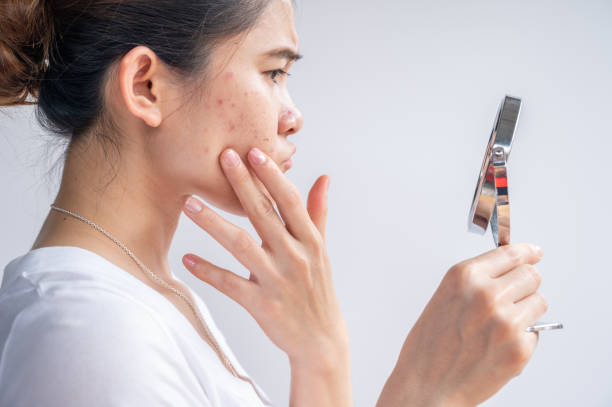Acne is a common skin condition that affects people of all ages, often causing physical and emotional distress. While it’s most prevalent during adolescence, it can persist into adulthood. Acne comes in various forms, each with its own set of causes and treatments. In this blog, we’ll delve into the different types of acne, their underlying causes, and the various treatment options available such as Accutane for acne to help you achieve clear and healthy skin.
Types of Acne
-
Comedonal Acne: This type of acne is characterized by the presence of comedones, which are non-inflammatory, closed or open clogged pores. Closed comedones are commonly known as whiteheads, while open comedones are called blackheads.
-
Inflammatory Acne: Inflammatory acne includes papules, pustules, and nodules. Papules are small, red, tender bumps, while pustules are similar but filled with pus. Nodules are larger, painful lumps beneath the skin’s surface.
-
Cystic Acne: Cystic acne is one of the most severe forms of acne. It is characterized by deep, painful cysts filled with pus that can lead to scarring.
-
Hormonal Acne: Fluctuations in hormones, such as during puberty, menstruation, or pregnancy, can trigger hormonal acne. It often appears as deep, cystic acne along the jawline, chin, and neck.
Causes of Acne
Understanding the underlying causes of acne is crucial in choosing the right treatment. Here are some common factors contributing to acne:
-
Excess Sebum Production: The sebaceous glands in the skin produce sebum, an oily substance that can clog pores when overproduced.
-
Clogged Pores: When dead skin cells and sebum block hair follicles, it creates an ideal environment for acne-causing bacteria to thrive.
-
Bacterial Infection: The presence of Propionibacterium acnes (P. acnes) bacteria on the skin can exacerbate inflammation and acne.
-
Hormonal Changes: Hormonal fluctuations can stimulate the sebaceous glands, leading to increased oil production and acne, as seen in hormonal acne.
-
Diet: Certain foods high in sugar and dairy can potentially worsen acne in some individuals.
-
Stress: High-stress levels can trigger hormonal changes that contribute to acne flare-ups.
Treatment Options
The choice of treatment depends on the type and severity of acne. Here are some effective treatment options:
-
Topical Treatments: Over-the-counter and prescription topical creams and gels containing ingredients like benzoyl peroxide, salicylic acid, or retinoids can help unclog pores and reduce inflammation.
-
Oral Medications: For moderate to severe acne, oral antibiotics like doxycycline monohydrate 100 mg tablet or isotretinoin 40 mg may be prescribed to reduce inflammation and bacteria.
-
Hormonal Therapy: Birth control pills and hormone-regulating medications can be effective in treating hormonal acne by balancing hormone levels.
-
Chemical Peels: Chemical peels use acids to exfoliate the skin’s surface, helping to improve acne and acne scars.
-
Light and Laser Therapies: These treatments target acne-causing bacteria and reduce inflammation, promoting clearer skin.
-
Lifestyle Modifications: Adopting a healthy diet, managing stress, and maintaining a good skincare routine can complement other treatments.
-
Extraction: Dermatologists can perform professional extractions to remove stubborn blackheads and whiteheads.
Conclusion
Acne is a common skin condition with various types and causes, but it is treatable. Finding the right treatment requires identifying the type and severity of your acne and consulting with a dermatologist for personalized recommendations. Whether it’s through topical treatments, oral medications, hormonal therapy, or lifestyle changes, there are effective options to help you achieve clearer and healthier skin. Remember that consistency and patience are key when managing acne, and seeking professional advice is always a wise step in your journey towards achieving acne-free skin.


